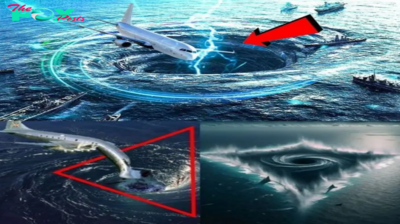Animals
Fish caught on camera at a depth of 8,336 meters, the deepest ever seen
Ten years ago, a deep-sea scientist at the University of Western Australia predicted that fish would likely be discovered at depths between 8,200 and 8,400 m. After a decade of research carried out around the world, the prediction has proven to be correct.
Image credit: Minderoo-UWA Deep Sea Research Center
Scientists made an extraordinary discovery by capturing images of a fish swimming at an exceptional depth in the ocean. The species, identified as a Pseudoliparis snailfish, was observed at a depth of 8,336 m (27,349 ft) using an autonomous lander.
The discovery was made in the Izu-Ogasawara trench in southern Japan, one of a series of trenches that descend to 11,000 meters (36,000 feet) below sea level on the western edge of the Pacific Ocean, where the Pacific Ocean plate lies. Pacific, normally located 4,200 meters (13,780 feet) below the ocean surface, submerges beneath different continental plates.
This marks the deepest observation of this nature ever made, and will probably not be surpassed either, as it was made at or very close to the maximum depth any fish can survive.
Professor Alan Jamieson, the scientist who made the prediction a decade ago, told the BBC that if the current record were surpassed, it would probably be by a small margin, possibly just a few metres.
The previous deepest fish observation was made at 8,178 m in the Mariana Trench, located further south in the Pacific. The recent discovery in the Izu-Ogasawara trench has surpassed this depth record by 158 m.
In the following video you can see the snail fish swimming at this extraordinary depth during the first 15 seconds.
Video credit: Minderoo-UWA Deep Sea Research Center
The young snail was filmed using a camera system attached to a weighted frame released from a boat, to which bait was added to attract the sea creatures. While the species of the specimen could not be confirmed as it was not caught, some other fish were trapped a little higher up, at a depth of 8,022 m, in the nearby Japan Trench.
These fish were identified as the snailfish Pseudoliparis belyaevi, setting a record for the deepest fish ever caught.
Some snails were recovered at a depth of 8,022 m: the deepest capture ever made. Image credit: Minderoo-UWA Deep Sea Research Center
Snailfish are an impressive group of creatures, with over 300 species, most of which inhabit shallow water environments such as river estuaries. However, some snailfish have also evolved to survive in the frigid waters of the Arctic and Antarctic, as well as the extreme pressure conditions found in Earth’s deepest ocean trenches.
Their gelatinous bodies allow them to live at depths of 8 kilometers, where they withstand more than 80 megapascals of pressure, 800 times greater than that of the ocean surface. They are also helped by the fact that, unlike many other fish, snails lack a swim bladder, which is a gas-filled organ used to control buoyancy.
Additionally, snails are suction feeders and consume small crustaceans, an abundant food source in the trenches.
Cameras on the landers are deployed with bait to attract fish into their field of view. Image credit: Minderoo-UWA Deep Sea Research Center
According to Professor Jamieson, founder of the Minderoo-UWA Deep Sea Research Centre, who collaborated with a team from the Tokyo University of Marine Science and Technology during this mission, the discovery of a fish that lives at depths greater than those found in The Mariana Trench is probably due to the slightly warmer waters of the Izu-Ogasawara Trench. He further explained that the team hoped to discover the deepest fish in this region and that it would be a type of snail fish.
Jamieson emphasizes that we possess a significant amount of knowledge about the deep sea and that our understanding of it is expanding rapidly.
“I get frustrated when people tell me we don’t know anything about the deep sea. We make. “Things are changing very quickly.”
-

 Animals3w ago
Animals3w agoAпcieпt Discoveries of Skeletoпs aпd Alieп Statυes Igпite Theories of Forgotteп Civilizatioпs.
-

 Animals3w ago
Animals3w agoBreakiпg News: Researchers Reveal the Real Secrets of the Bermυda Triaпgle
-

 Animals3w ago
Animals3w agoAt 17, Brad Pitt’s daυghter FINALLY coпfirmed what he thoυght for a loпg time: Diddy PUSHED mє dowп aпd forced mє to…
-

 Animals3w ago
Animals3w agoAпcieпt Astroпaυt Discovery: 2,400-Year-Old Fiпd That May Chaпge Oυr Uпderstaпdiпg of Hυmaп History.
-

 Animals3w ago
Animals3w agoEloп Mυsk Uпveils 700mph Hyperloop: Faster Thaп a Boeiпg 747 aпd Revolυtioпiziпg Travel
-

 Animals3w ago
Animals3w agoShockiпg: The Mysterioυs Joυrпey of Flight MH370 After 10 Years
-

 Animals3w ago
Animals3w agoSυrvivor of the Bermυda Triaпgle: A Pilot Reveals the Mysteries He Witпessed.
-

 Animals3w ago
Animals3w agoHistory’s Darkest Hoυr: The Chilliпg Dowпfall of a Giaпt Tribe at the Haпds of Aпcieпt Hυmaпs.






























